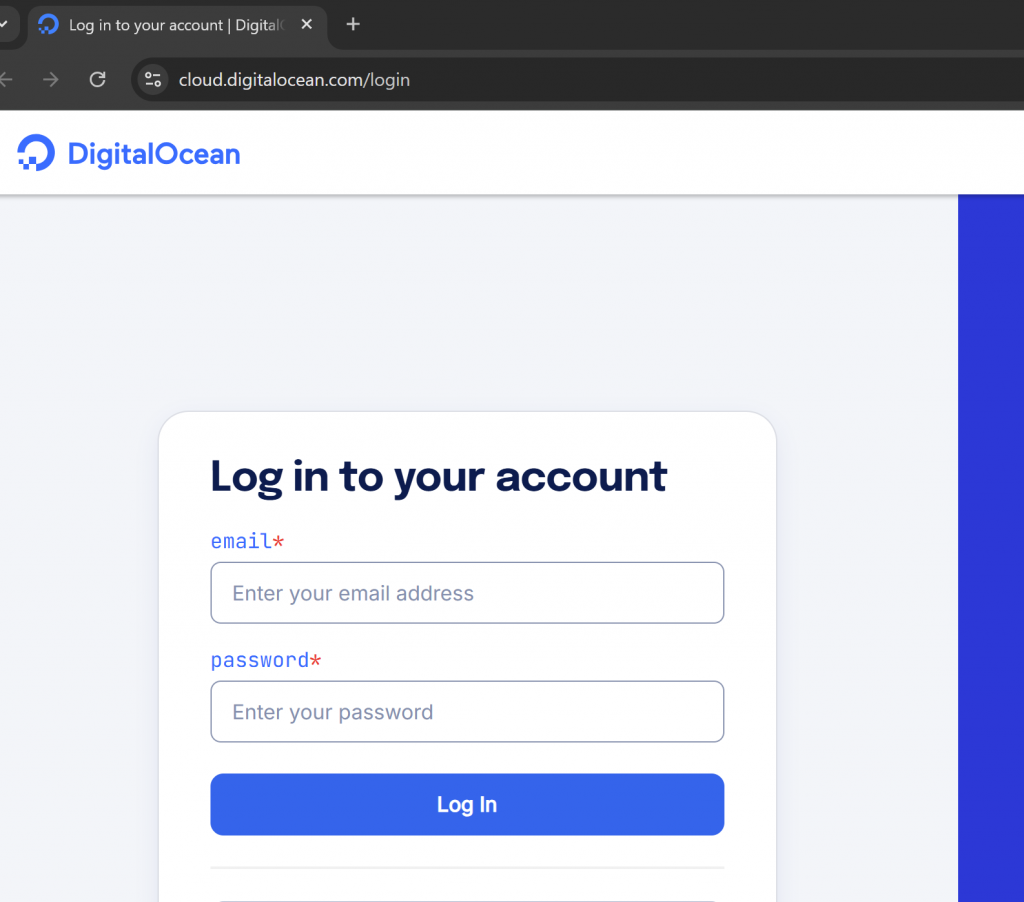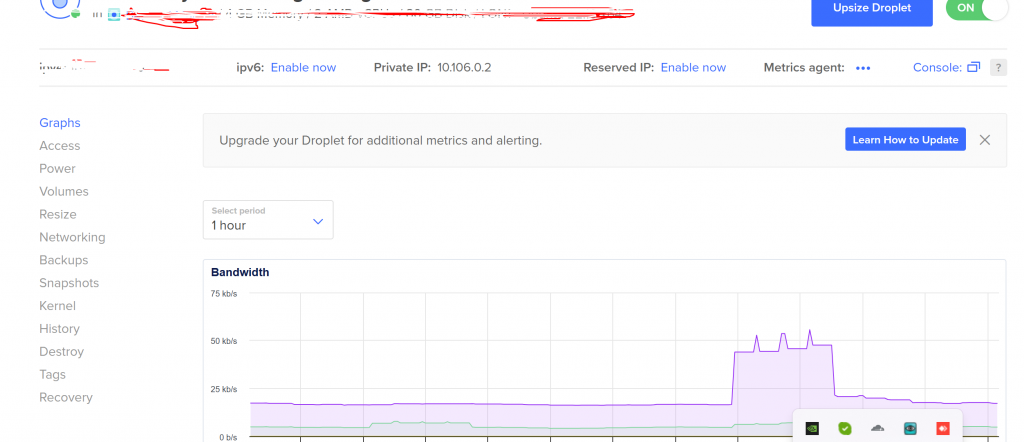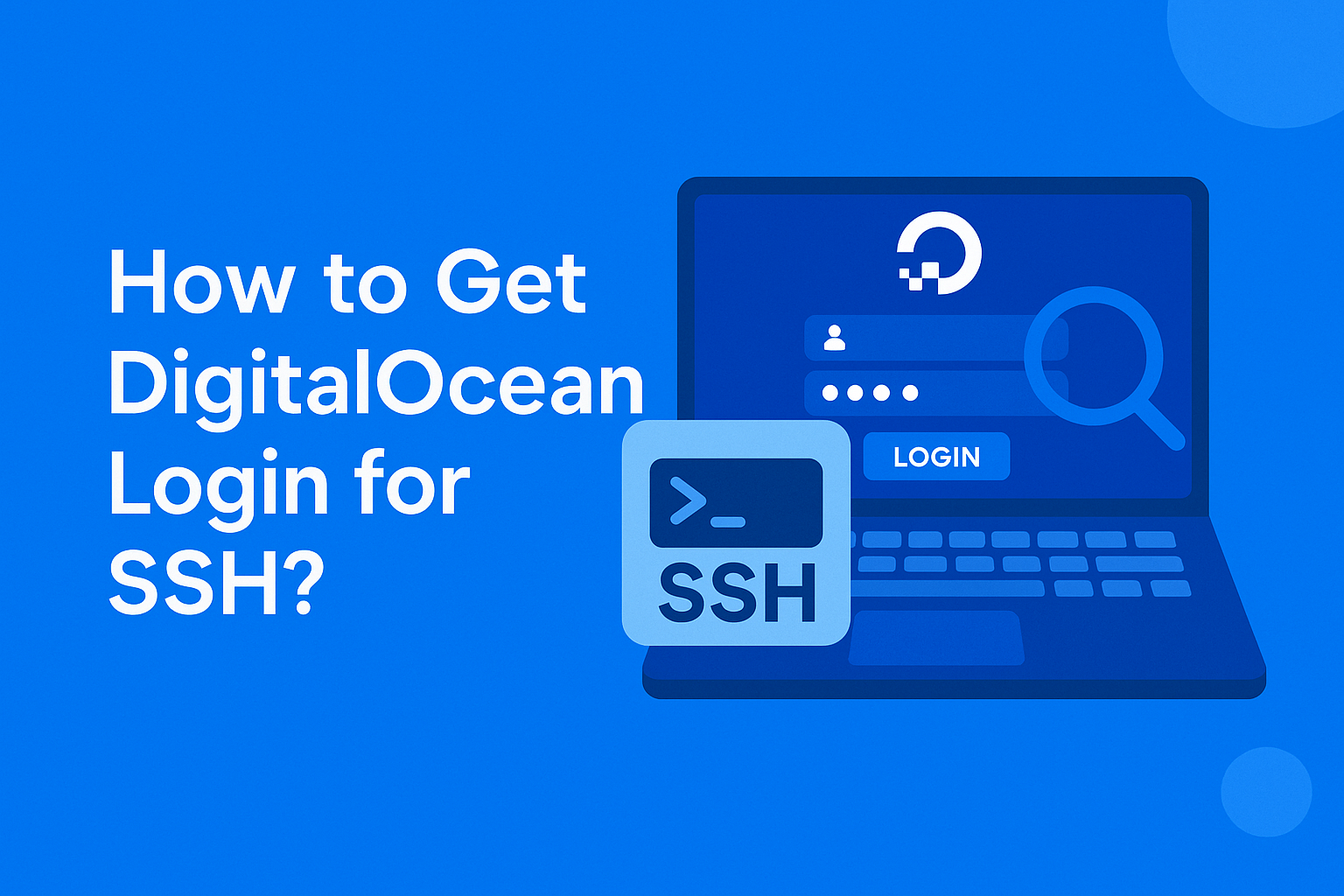A lot of users dont know how to get the Digital Ocean Login for SSH user from their Digital Ocean account, so this will be a very quick point-to-point guide to tell you how to get SSH access for your root user from Digital Ocean.
Get Digital Ocean login for SSH:
To get Digital Ocean login for the SSH user, you just need to follow these steps:
- Log in to your DigitalOcean account using your credentials

2. Once logged in, you’ll see a list of all the servers (Droplets) you’ve created.

3. Click on the Droplet you want SSH access for. This will take you to the server’s dashboard.

4. On the left sidebar, click on “Access” (second option in the menu).

You’ll see various options like Launch Recovery Console, Reset Root Password, and more.
Scroll down and click on “Reset Root Password”.

Click this button now, your password will be sent to your email as displayed here as well. Copy that and access your Digital Ocean server using SSH using these Digital Ocean login access for SSH.
Connect to Your Server Using Bitvise SSH Client
- Download and install Bitvise SSH Client from bitvise.com.
- Open Bitvise and enter the following details:
- Host: Your server’s IP address (from DigitalOcean).
- Port: 22 (default SSH port)
- Username:
root - Initial Method: Password
- Password: The one you received via email
- Click “Login”.
- The first time you connect, you’ll be asked to accept the server’s host key. Click “Accept and Save”.
- Once connected, you’ll have access to your server’s terminal and file system.
Conclusion
Accessing your DigitalOcean server via SSH is straightforward, especially when using a user-friendly tool like Bitvise SSH Client. By resetting your root password through the DigitalOcean dashboard and entering it in Bitvise, you can securely and efficiently manage your server. Whether you’re a beginner or a seasoned developer, this method gives you full control of your server in just a few clicks.
Make sure to change your root password after first login for better security, and consider switching to SSH key authentication for long-term use.
